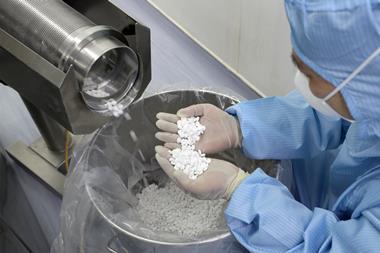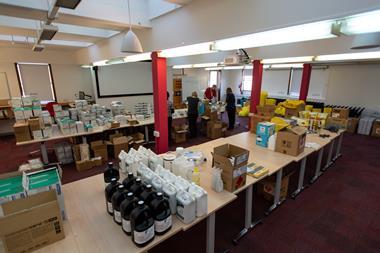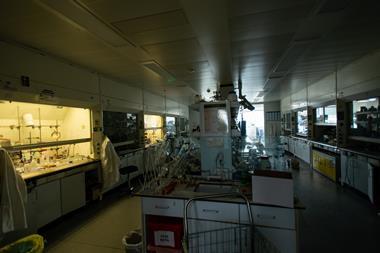Six research projects at UK universities are the first to receive funds from a £20 million pot earmarked by the government for the battle against coronavirus.
Two projects at the University of Oxford are focused on vaccine development. A combined £2.6 million will go towards pre-clinical and clinical trials and setting up the manufacturing capacity to mass produce a vaccine should it prove successful.
Government backing has also been announced for treatments for Covid-19. £2.4 million will support laboratory and clinical studies that aim to discover whether any existing medicines can be repurposed to treat patients with coronavirus. Meanwhile, £600,000 will go to an Imperial College London project that is developing antibodies that bind to coronavirus proteins, with the hope that it could lead to a new therapy for patients.
A further £4.9 million is being distributed to a joint project involving groups at Imperial, the University of Edinburgh and the University of Liverpool. This project will collect data from at least 1300 UK coronavirus patients, to provide real-time information about the effects and spread of the disease.
‘The projects announced today take different strategic approaches to examining how the immune system’s responses can be harnessed against the Sars-CoV-2 virus – from vaccine development to creating new medicines to repurposing existing drugs,’ said the British Society of Immunology’s chief executive, Doug Brown. Brown added that making the funds available to these projects will ‘maximise the likelihood of a quick turnaround in bringing new therapeutics to market’.
The research grants come on top of £20 million that the UK government pledged to the Coalition for Epidemic Preparedness Innovations in February, to fund the development of vaccines for coronavirus and other infectious diseases. The foundation put out a call for an additional £2 billion to help develop a Sars-CoV-2 vaccine on 14 March. Cepi has said that it will run out of seed money to back the development vaccines by the end of the month if further funding isn’t pledged.
Michael Head, a researcher on global health based at the University of Southampton, said that it is ‘excellent’ to see the funds being awarded, but also noted that further funding is required worldwide, to better prepare for future outbreaks. ‘Global funding for coronavirus research has been minimal over the last 20 years, even with the Sars and Mers outbreaks providing a warning that further large outbreaks are clearly possible,’ he said.
‘Future investments into pandemic planning also must be massively expanded, as we have seen how poorly-prepared the world has been for Covid-19,’ Head added. ‘This must include research with the world’s poorest countries, to urgently improve the capacity of their health systems.’

















No comments yet